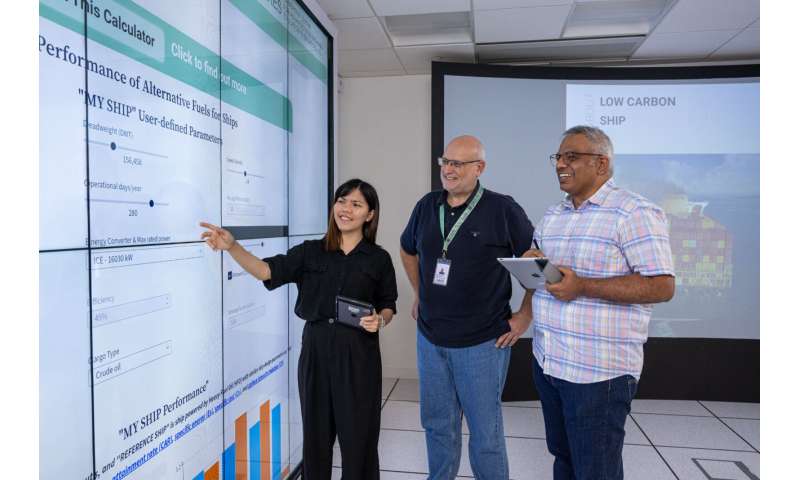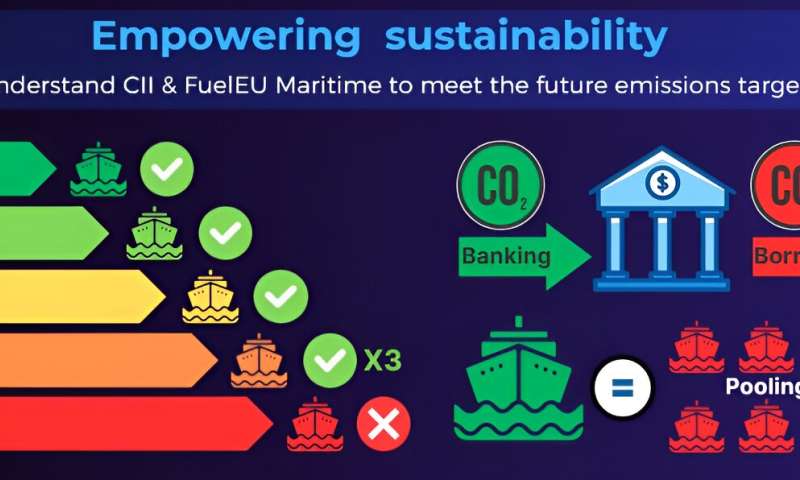Transforming the sustainability of future ships with physical modeling and machine-learning

The International Maritime Organization (IMO) aims for net-zero greenhouse gas emissions from shipping by 2050. This can be achieved in various ways such as improving ship design and combustion systems, transitioning away from fossil fuels, improving port functionalities, and investing more in digital solutions.
EMICAST is the latest spin-off from CARES that will offer advanced visualization of ship emissions through rigorous carbon accounting and forecasting techniques powered by machine learning algorithms. This service streamlines emissions compliance, empowering ship operators to optimize both operational efficiency and profitability while adhering to regulatory standards.
Through the deep knowledge of alternative low-carbon fuels and novel propulsion systems, EMICAST can also help with the design of future ships.
How EMICAST started
The initiative behind EMICAST has its roots in scientifically published models of alternative fuels and their impact on ship propulsion systems back in 2022. Some of these were made available in the first iteration of a maritime-fuel calculator (https://www.lowcarbonship.com) that provided insights into the performance of ships powered by low-carbon alternatives.
It became practical to visualize and project greenhouse gas (GHG) intensities relative to decarbonization timeframes before any action could be taken to improve a ship's carbon rating.
Therefore, EMICAST was created with the primary goal of providing comprehensive services encompassing carbon accounting, reporting, and emissions forecasting to accurately quantify GHG intensities and their potential penalties.
Subsequently, timely low-carbon solutions can be tailored to individual ships, ensuring emissions compliance while safeguarding operators' profitability.

EMICAST in the future
EMICAST aims to deploy various machine-learning tools using real-time data that can more accurately define how new fuels might behave in realistic routing scenarios.
Co-founder Prof Epaminondas Mastorakos explains, "Proper thermodynamics modeling and careful analysis of engine performance when changing fuel, enabled by our research in CARES, allows better predictions of what a future ship would look like and what its emissions might be."
Co-founder, Dr. Li Chin Law adds, "EMICAST can help with properly accounting, on a lifecycle basis, the use of various fuels that are being considered. This can help maritime stakeholders make informed decisions and investment choices."
This holistic approach underscores EMICAST's commitment to advancing green practices in the maritime industry without compromising ship operations and bridging the gap between research excellence and tangible solutions to accelerate shipping decarbonization.
The technology behind EMICAST was generated from the CARES Carbon Reduction in Chemical Technologies (C4T) program investigating maritime decarbonization. Dr. Li Chin Law co-founded the spin-off with team members Charalampos Soultatis (ADK Maritime), and Dr. Savvas Gkantonas and Prof Epaminondas Mastorakos, both affiliated with the University of Cambridge.
More information:
Explore EMICAST, the free CII and FuelEU Maritime calculator for swift assessment of any ship's CII rating and Fuel EU penalties: emi-cast.com/calculator/
EMICAST on LinkedIn: www.linkedin.com/company/emicast/
Provided by Cambridge Centre for Advanced Research and Education in Singapore